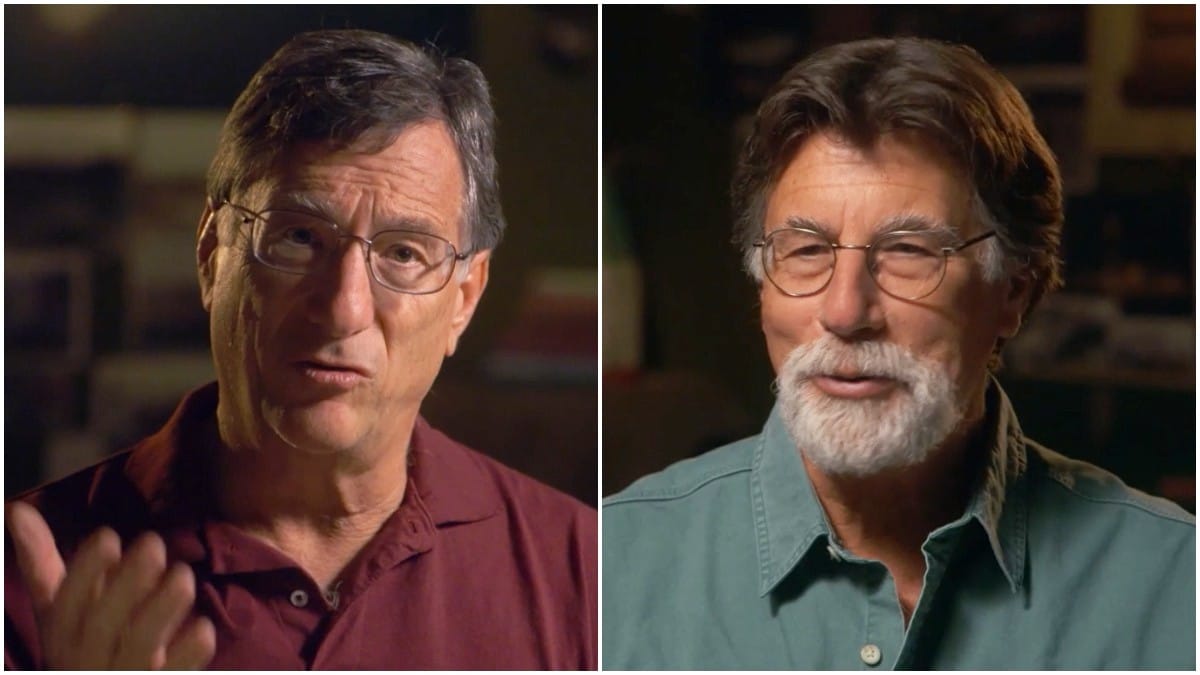
The Curse of Oak Island was back last night with the new season premiere, and the team started exactly where they left off last year with an earth-shattering discovery. A new scientific analysis has revealed the presence of gold on the island.
As the Fellowship of the Dig readied themselves to take their first shot of the year at locating the Money Pit, Rick Lagina said that he is “as hopeful as he’s ever been” about this year’s prospects, and that was not just an empty platitude. In fact, Rick may have been being a little understated, as it appears the team has actually found gold.
In the final episode of Season 8, the guys learned of the presence of silver in water buried under the surface in the Money Pit area. This was the result of scientific analysis by geoscientist Dr. Ian Spooner. Now all the guys had to do was wait for this year to, hopefully, dig it up.
The guys were understandably super excited about the silver, but what they really wanted was gold. Silver is second best, but gold is for winners. At the time of Spooner’s initial experiment, he said it was impossible to test for gold as the precious metal is too soluble. The guys consoled themselves by concluding that if they find silver, they’ll probably find gold.
However, in the meantime, Spooner had found another geoscientist doctor guy called Dr. Peir Pufahl from Queens University, Ontario, and he had a laboratory that could test for gold; “nothing is completely soluble,” said Pufahl when quizzed about how this was possible.
Spooner and the guys collected more water samples from the Money Pit area, centered mainly around the old C-1 borehole, where the guys had previously spotted some shiny objects below the surface and sent them off to Dr. Pufahl.
We viewers often have to wait weeks or months for results, but thanks to last night’s episode, we only had to wait about 15 minutes for Pufahl’s results. Spooner was visibly trembling with excitement as he announced that gold was found in a number of the boreholes.
Marty Lagina is ‘over the moon’
Marty Lagina was delighted: “I was over the moon about silver in the water; now they’re saying gold,” he said. Pufahl confirmed that traces of gold were found in the water, and much more than could occur naturally, which means a deposit of gold treasure is likely leaking into the water. Pufahl said he’d get back to them with a more detailed analysis.
It turned out the guys couldn’t wait for that. They got the Choice Drilling Company in straight away and told them to start drilling some boreholes with their 30-ton sonic drill rig. The guys are hoping to find something with the boreholes and then switch to the ten feet caisson cans in the future.
Rick pointed out that this year’s drilling was different from all others; usually, they set up a grid and just hoped to find something, but this year they’ve already found something, and they just need to find out what it is. Simple!
They focused the drilling around the C-1 borehole area, and all they found were several pieces of wood. Before you start groaning, they had only dug two holes, and finding wood is an important start. There is plenty more drilling to be done.
Unnatural levels of gold in the water confirmed
At the end of the show, Dr. Pufahl was back on a video call to confirm the amount of silver and gold in the water samples. He all but confirmed that the level of gold was not from natural causes. And he also pointed out that all the gold-containing samples came within a 50-foot area, so there’s definitely something in the C-1 Money Pit vicinity.

Marty, half-jokingly, asked his brother: “a couple of weeks to the gold?” The whole team laughed, but it’s clear they think it’s possible.
The Curse of Oak Island airs Tuesdays at 9/8c on History.
Why don’t you look at water current? If you detect gold or silver what is the water directional flow? Objects sill move around and if in each drill site you can determine the water flow you could project how things will move
Would someone explain how a gold object leaches material in salt or fresh water. Gold is an inert mineral and will not disolve unless subjected to a strong acid .
Same question I am asking???
Gold dissolves in water due to chloride ions (sodium, magnesium, and calcium salts). Because those salts are found in all bodies of water, gold will slowly dissolve in water. The test shows gold is elevated by 580%. But that’s with a gold average of 0.01%. I thought the average amount of gold was 0.001%, but that would have put gold at 6,700% above average. All of this is in parts per billion, too. Air quality is judged by parts per million.
Short of finding the Holy Grail itself, there is no way A+E Network is ever going to see a profit. Whoever gets left holding the Oak Island debt is going bankrupt when the show ends. But it’ll most likely be an LLC or something similar.
Something to remember is that absolutely nothing in our known universe is a single solid object. There’s more open space in any element than actual element itself.